Gallery: Omega Pharma - QuickStep undertake military-style training camp
More team building for the team which dominated 2012
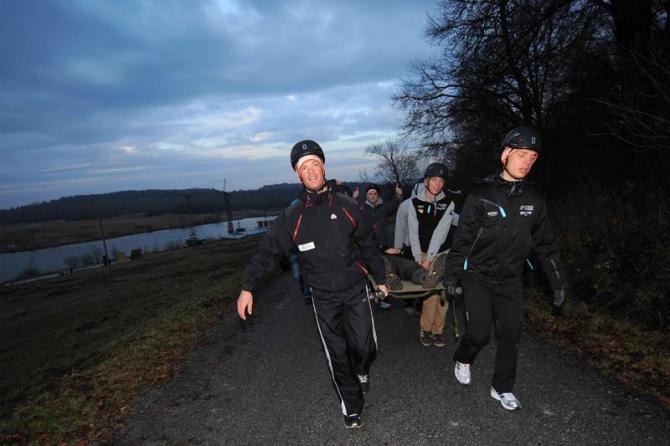
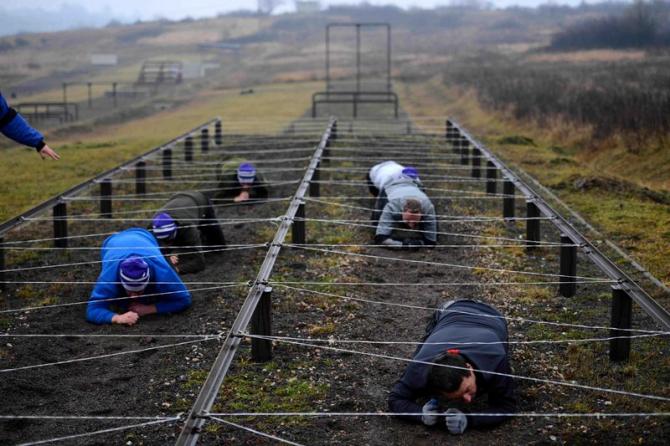
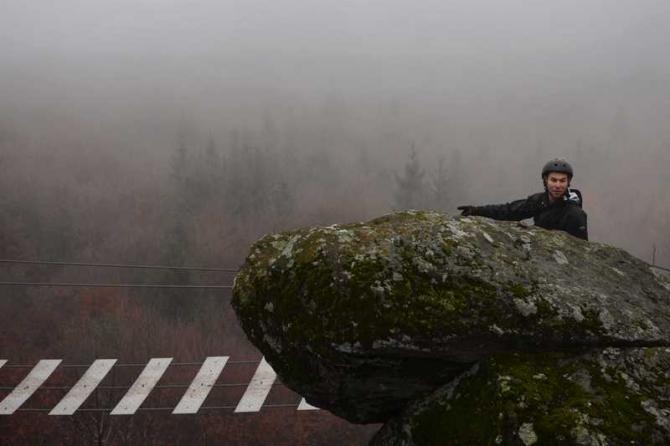
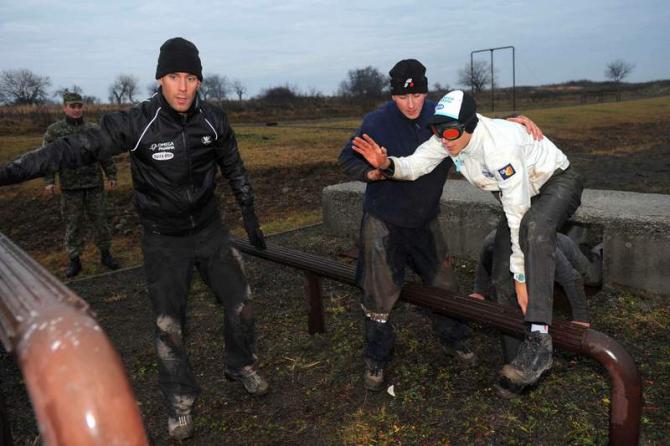
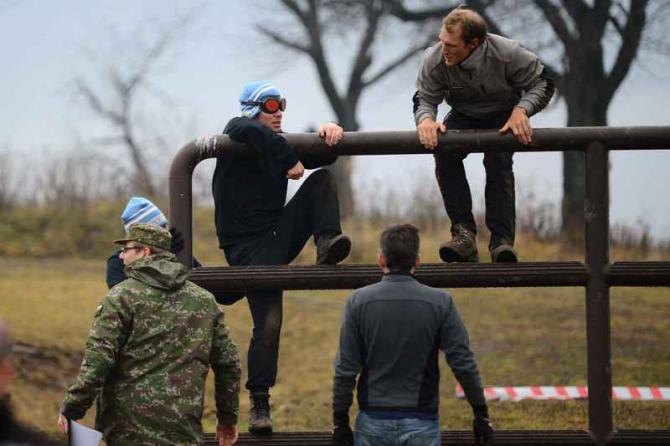
A military base in Lest, Slovakia played host to the Omega Pharma - QuickStep team-building camp over two days this week.
Riders and staff honed their inner-siege mentality, set missions, and challenged by physical tests and ability trial in view of stationed military officers. The missions included obstacle courses, defense techniques, climbing, shooting simulation, orienteering, and rescue activities.
Tom Boonen was a notable absentee, forced to miss the activities due to a bout of stomach flu.
Dual world time trial champion, Tony Martin took some time to adjust to the intensity required in the camp.
"I didn't know what to expect from these activities," he explained. "I started out a little skeptical, but then my teammates got me involved, and I ended up having a lot of fun. I'd like to thank all the personnel at the base, who were very professional but at the same time were really attentive to our needs. All the activities, even the most challenging ones, were performed in complete safety under their reassuring, expert supervision. This is definitely an experience worth repeating!"
Martin and Peter Velits were equally impressed, despite the hard work required.
"We also got the chance to get to know our teammates and the newcomers better, in a context that was unfamiliar to all of us, a situation in which unity meant strength."
Get The Leadout Newsletter
The latest race content, interviews, features, reviews and expert buying guides, direct to your inbox!
The military-style camp was the initiative of trainer and directeur sportif Tom Steels. Despite claiming 51 victories in 2012, including a dominant run throughout the Classics with Dwars door Vlaanderen – Waregem, E3, Gent – Wevelgem, de Panne, the Tour of Flanders and Paris-Roubaix, the focus of the camp was very much on team building.
"The guys showed an immense spirit of sacrifice, helping each other achieve tasks and spending the night together in a bivouac, sleeping in sleeping bags," explained Steels. "Compared to last year, we spent more time focusing on technical challenges and the concept of collaboration. For example, the guys simulated rescue operations to help wounded civilians, practicing emergency intervention techniques such as bandaging, transporting wounded people on gurneys, and rescue on rough terrain, which forced the teammates to work as a close knit group. At the same time, each member of the team shared their own individual skills with the rest of the group. Some of them were stronger in the physical tests; others did better in the technical trials, which included a night time orienteering activity that was far from simple."